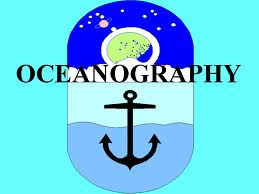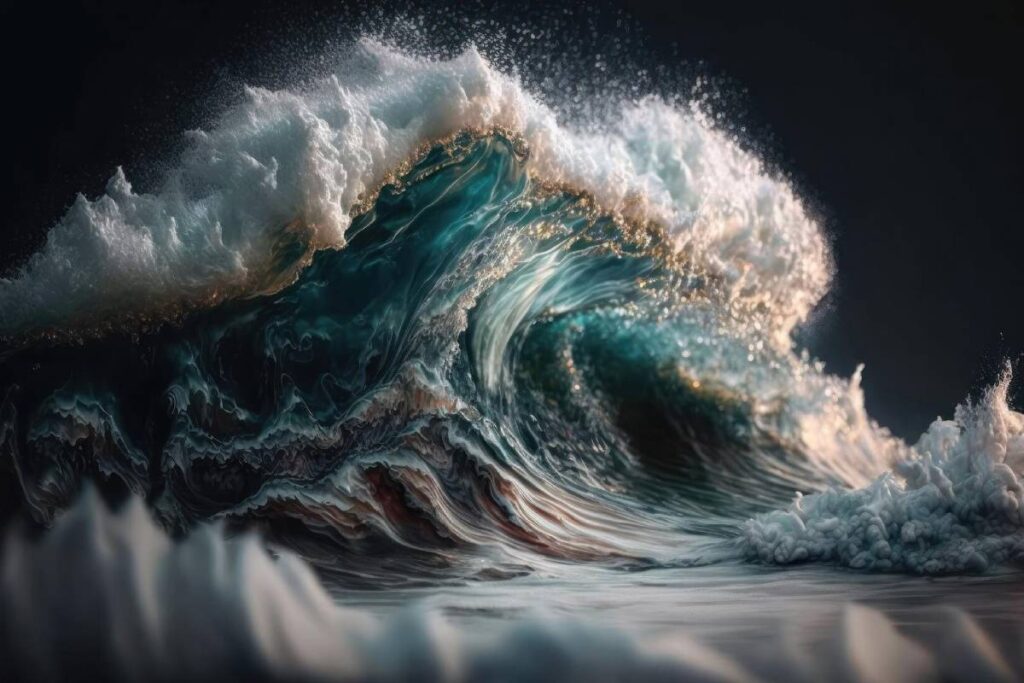Exploring the Depths: An Introduction to Oceanography
The general thought associated with careers in Oceanography consists of swimming with marine animals at a marine life park or studying coral reefs. In reality, Oceanographers work in fields that use science to solve a particular problem in the ocean.
 Oceanography, the science of oceans is the scientific study of all aspects of the ocean, their boundaries, and their continents. To be more specific, this is the study of the seas, its coastline, estuaries, coastal waters, shelves, and the ocean bed.
Oceanography, the science of oceans is the scientific study of all aspects of the ocean, their boundaries, and their continents. To be more specific, this is the study of the seas, its coastline, estuaries, coastal waters, shelves, and the ocean bed.
As such it is an interdisciplinary science that integrates Principles Of Biology, Chemistry, Geology, Meteorology, Physics and the application of Mathematics, Engineering Science along with the use of marine life, etc.
The work involves collecting samples, conducting surveys, and analyzing data using sophisticated equipment in the sea for long hours. Oceanographers collect and study data of ocean waters through waves, currents, and tides; marine life, mineral and oil deposits in the ocean bed, as well as the contours of the ocean bed.
The work entails laboratory work. They have to be on a research station at sea for several weeks. Oceanographers work in onshore laboratories, offices, and aquariums using a variety of highly technical devices for underwater work.
Their findings provide valuable information for industry and Government. The fishing industry, for example, is interested in the life cycles and food chain of marine life. The shipbuilding industry uses information about the sea to design new ships. The study of oceanography is used for the preparation of maps, charts, and graphs.
The study of oceanography is divided into the following branches:
- Biological oceanography or marine biology: the study of the plants, animals, and microbes of the oceans and their ecological interaction with the ocean.
- Chemical oceanography or marine chemistry: the study of the chemistry of the ocean and its chemical interaction with the atmosphere.
- Geological oceanography or marine geology: the study of the geology of the ocean floor including plate tectonics and paleoceanography.
- Physical oceanography or marine physics: studies the ocean’s physical attributes including temperature-salinity structure, mixing, waves, internal waves, surface tides, internal tides, and currents.
Educational Qualification:
No undergraduate courses are available. Only Post-Graduate degrees are available. A B.Sc Life science Graduate with enthusiasm to work and study the ocean could enroll for such courses. Few Universities offer an M.Tech in Oceanography, for which any M.Sc student can apply, and would require clearing the requisite entrance exams.
Personality Traits:
- High level of Stamina
- Ability to work under pressure
- Excellent Teamwork
- Organizational Skills
- Patience
- The high amount of Creativity
- Ability to withstand boredom and loneliness
- love for exploring new places
Job Prospects:
- National Institute of Oceanography
- Government Organization
- Research Organizations
- Meteorological Departments
- Oil and Natural Gas Organizations
- Defense and Para-military forces
- Fishery Houses
- Industries [packaging, marketing, exports of marine products]
- Maintaining Archives on marine data
- Geological Survey of India
While reading and watching the discovery of oceanographers sounds like an interesting profile. One must not forget the intense amount of hard work put in to compile the findings.
Someone interested in the profession must have a complete research bent of mind and a love for nature and sea creatures. Also one must note, that there are no fixed working hours in this field. One must be ready to work and travel round the clock and must be completely research-focused.
The increasing demand for seafood, sea-based medicines, and grooming of Eco-friendly industries automatically brings in the demand for this new profession in our country. You need to be an adventurous person in love with nature and the environment.
Frequently Asked Questions related to oceanography:
Q1: What is oceanography?
A1: Oceanography is the scientific study of the world’s oceans, including their physical, chemical, biological, and geological aspects.
Q2: What are the main branches of oceanography?
A2: Oceanography comprises physical, chemical, biological, and geological.
Q3: Why is oceanography important?
A3: It helps us understand climate, marine ecosystems, ocean circulation, weather patterns, and the Earth’s geological history.
Q4: How can I pursue a career in oceanography?
A4: A career in oceanography typically requires a degree in marine science or a related field. Advanced degrees are often required for research and academic positions.
Q5: What equipment and technologies do oceanographers use for research?
A5: Oceanographers use tools like research vessels, underwater vehicles, remote sensing, and specialized sensors to collect data from the oceans.
Q6: What is the impact of climate change on the oceans, and how is it studied?
A6: Climate change affects ocean temperatures, sea level rise, and ocean acidification. Oceanographers study these changes through data collection and modeling.
Q7: How does oceanography contribute to marine conservation efforts?
A7: This provides insights into marine ecosystems, helping inform conservation strategies and policies.
Q8: What are some notable discoveries made in oceanography?
A8: Notable discoveries include the Mid-Atlantic Ridge, deep-sea hydrothermal vents, and the Great Barrier Reef.
Q9: How can I get involved in ocean conservation and help protect our oceans?
A9: You can support ocean conservation by reducing plastic use, participating in beach cleanups, and supporting organizations dedicated to marine preservation.
Q10: What are some famous oceanographers and their contributions to the field?
A10: Famous oceanographers include Jacques Cousteau, Sylvia Earle, and Robert Ballard, known for their pioneering research and exploration of the oceans.
Q11: How do oceanographers conduct deep-sea exploration and research?
A11: Deep-sea exploration involves the use of submersibles, remotely operated vehicles (ROVs), and autonomous underwater vehicles (AUVs) equipped with various instruments.
Q12: How does oceanography relate to weather forecasting and climate prediction?
A12: This provides valuable data on ocean currents, temperature, and atmospheric interactions, contributing to more accurate weather forecasts and climate models.
Q13: What are some ongoing challenges and research areas in oceanography?
A13: Ongoing research areas include understanding oceanic heat transport, marine biodiversity, and the impact of human activities on the oceans.
Q14: How can I access and use oceanographic data for my research or projects?
A14: Oceanographic data is often available through government agencies, research institutions, and online databases.
Q15: Are there educational resources or programs for students interested in oceanography?
A15: Many universities offer oceanography programs, and there are online courses, workshops, and internships for aspiring oceanographers.






